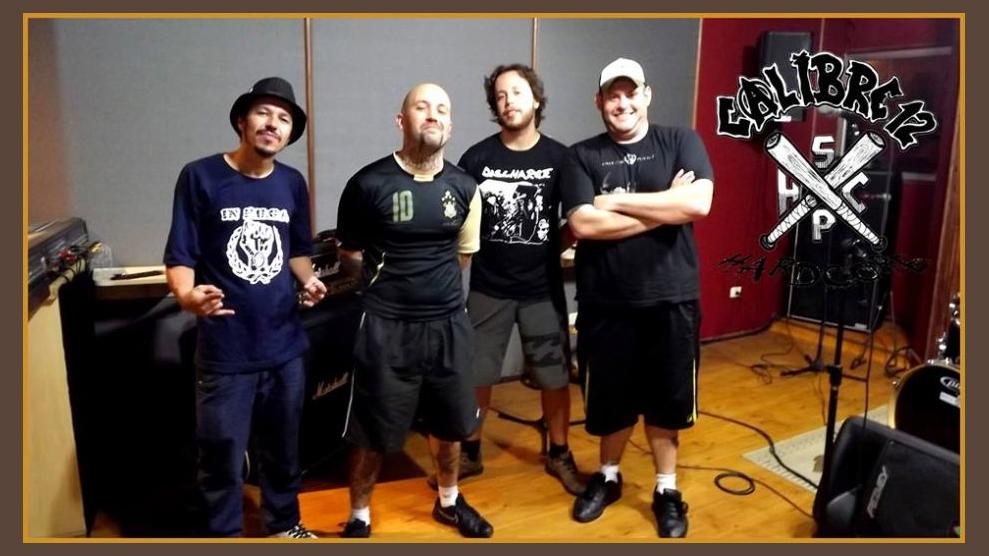 Calibre 12
Calibre 12
Calibre 12: A Punk Rock Brotherhood
Origins and Early Challenges
Calibre 12 emerged from the vibrant punk rock scene of São Paulo, Brazil, in 1982. Led by charismatic vocalist and guitarist Antônio "Tonho" Cruzo, the band faced initial resistance due to their raw and aggressive sound, which defied mainstream conventions. Their early shows were met with both admiration and hostility, but their determination remained unwavering.
Controversies and Identity
Calibre 12 quickly became known for their outspoken lyrics and confrontational stance against the military dictatorship that ruled Brazil at the time. Their iconic anthem, "Hino da Irmandade Punk," became a rallying cry for the oppressed and marginalized, earning them a reputation as a potent symbol of rebellion.
The band's outspoken nature also attracted controversy. Their 1986 album, "A Vida é Minha," featured a song that criticized the Catholic Church, leading to protests and censorship. Despite the challenges, Calibre 12 remained defiant, forging an unbreakable bond with their loyal fan base.
Discography and Legacy
Over the years, Calibre 12 released a series of acclaimed albums that cemented their status as one of the most influential punk rock bands in Brazil. Their discography includes:
* "Calibre 12" (1985)
* "A Vida é Minha" (1986)
* "A Cabeça Que Pensa" (1988)
* "Selvagem" (1989)
* "A Última Bala" (1993)
Calibre 12's music transcended the boundaries of punk rock, incorporating elements of hardcore, ska, and traditional Brazilian rhythms. Their lyrics, often written by Tonho Cruzo, explored themes of social injustice, freedom, and the struggle for a better world.
Members and Impact
The core lineup of Calibre 12 consisted of:
* Antônio "Tonho" Cruzo (vocals, guitar)
* Luiz "Luisão" Calil (bass)
* Paulo "Paulão" Rui (drums)
Over the years, the band underwent several lineup changes, but Tonho Cruzo remained the constant driving force. His charisma and uncompromising spirit left an enduring mark on the Brazilian punk rock scene.
Calibre 12's legacy continues to inspire and influence countless musicians and fans. Their music remains a testament to the power of rebellion, the importance of brotherhood, and the enduring spirit of punk rock.
Origins and Early Challenges
Calibre 12 emerged from the vibrant punk rock scene of São Paulo, Brazil, in 1982. Led by charismatic vocalist and guitarist Antônio "Tonho" Cruzo, the band faced initial resistance due to their raw and aggressive sound, which defied mainstream conventions. Their early shows were met with both admiration and hostility, but their determination remained unwavering.
Controversies and Identity
Calibre 12 quickly became known for their outspoken lyrics and confrontational stance against the military dictatorship that ruled Brazil at the time. Their iconic anthem, "Hino da Irmandade Punk," became a rallying cry for the oppressed and marginalized, earning them a reputation as a potent symbol of rebellion.
The band's outspoken nature also attracted controversy. Their 1986 album, "A Vida é Minha," featured a song that criticized the Catholic Church, leading to protests and censorship. Despite the challenges, Calibre 12 remained defiant, forging an unbreakable bond with their loyal fan base.
Discography and Legacy
Over the years, Calibre 12 released a series of acclaimed albums that cemented their status as one of the most influential punk rock bands in Brazil. Their discography includes:
* "Calibre 12" (1985)
* "A Vida é Minha" (1986)
* "A Cabeça Que Pensa" (1988)
* "Selvagem" (1989)
* "A Última Bala" (1993)
Calibre 12's music transcended the boundaries of punk rock, incorporating elements of hardcore, ska, and traditional Brazilian rhythms. Their lyrics, often written by Tonho Cruzo, explored themes of social injustice, freedom, and the struggle for a better world.
Members and Impact
The core lineup of Calibre 12 consisted of:
* Antônio "Tonho" Cruzo (vocals, guitar)
* Luiz "Luisão" Calil (bass)
* Paulo "Paulão" Rui (drums)
Over the years, the band underwent several lineup changes, but Tonho Cruzo remained the constant driving force. His charisma and uncompromising spirit left an enduring mark on the Brazilian punk rock scene.
Calibre 12's legacy continues to inspire and influence countless musicians and fans. Their music remains a testament to the power of rebellion, the importance of brotherhood, and the enduring spirit of punk rock.